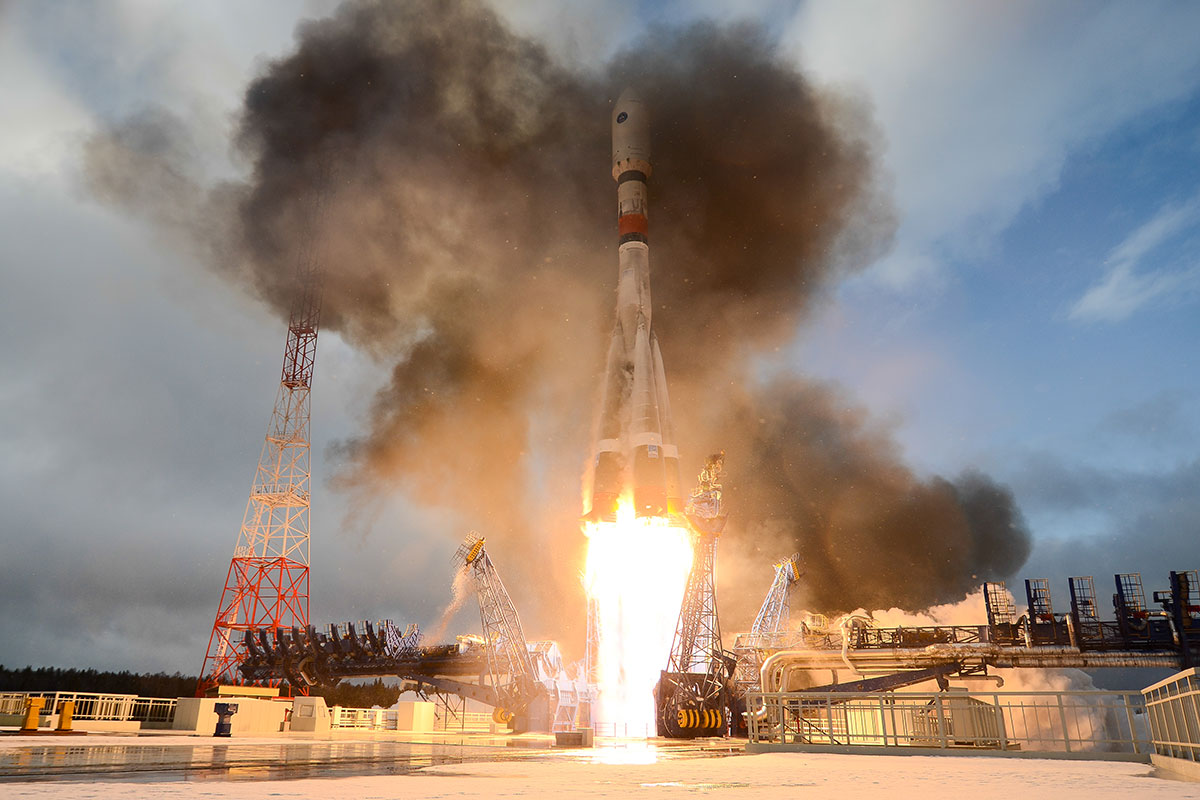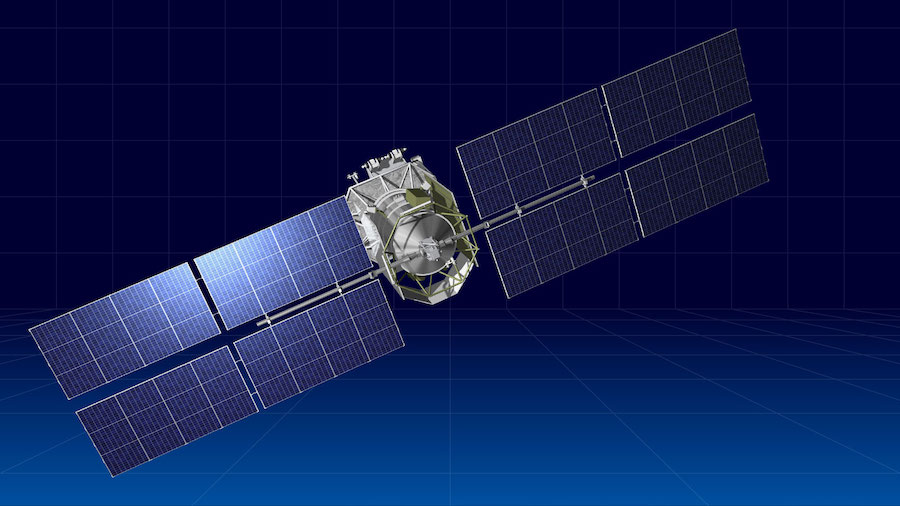On February 20th, the Russian Ministry of Defense carried out a successful satellite launch from the Plesetsk cosmodrome.
The launch was of a Soyuz-2 medium-class rocket carrier with the Russian communications spacecraft “Meridian-M” was carried out by the military crew of the Space Troops of the Aerospace Forces.
After taking off from the military-operated spaceport, the Soyuz booster headed southeast from Plesetsk over Russian territory and dropped its four liquid-fueled first stage boosters, core second stage and payload shroud in the first five minutes of the mission.
The Soyuz third stage ignited to place the mission’s Fregat upper stage and the Meridian M spacecraft on a suborbital trajectory.
After separating from the Soyuz third stage, the Fregat main engine was expected to fire three times to maneuver the Meridian M spacecraft into an elliptical, or egg-shaped, orbit ranging between roughly 600 and 25,000 miles (about 1,000 kilometers by 39,700 kilometers) above Earth, with an inclination of 62.8 degrees to the equator.
The launch was delayed from Jan. 24 due to an electrical problem detected in the Soyuz rocket’s third stage. Russian teams elected to replace the third stage with a new unit, pushing back the launch date by nearly a month.
This is the first launch of the Soyuz-2 launch vehicle from the Plesetsk cosmodrome in 2020. Flight tests of the “Soyuz 2” space rocket complex began at the Plesetsk cosmodrome on November 8th, 2004. Over the past 15 years, 43 launches of “Soyuz-2” rocket carriers of series 1A, 1B and 1B have been carried out from the Northern cosmodrome.
Russia has launched nine Meridian communications satellites since 2006 to begin replacing the Molniya family of data relay platforms. One of the Meridian satellites was lost in a Soyuz launch failure in 2011, and another was released into an off-target orbit in 2009.
The warranty period of the Meridian satellite is seven years. In 2019, the modernized Meridian-M satellite was launched into orbit.
The Meridian spacecraft are manufactured by ISS Reshetnev, a Russian space contractor, as replacements for a previous generation of Molniya communications satellites. The Russian contractor says the Meridian satellites weigh around 2.1 metric tons, or 4,630 pounds, and can operate for at least seven years in space.
The “Meridian-M” communications spacecraft is designed to provide communication between sea vessels and ice reconnaissance aircraft in the area of the Northern sea route with coastal and ground stations, and to expand the network of satellite communications stations in the Northern regions of Siberia and the Far East in the interests of developing the Russian Federation’s economy.
MORE ON THE TOPIC:







